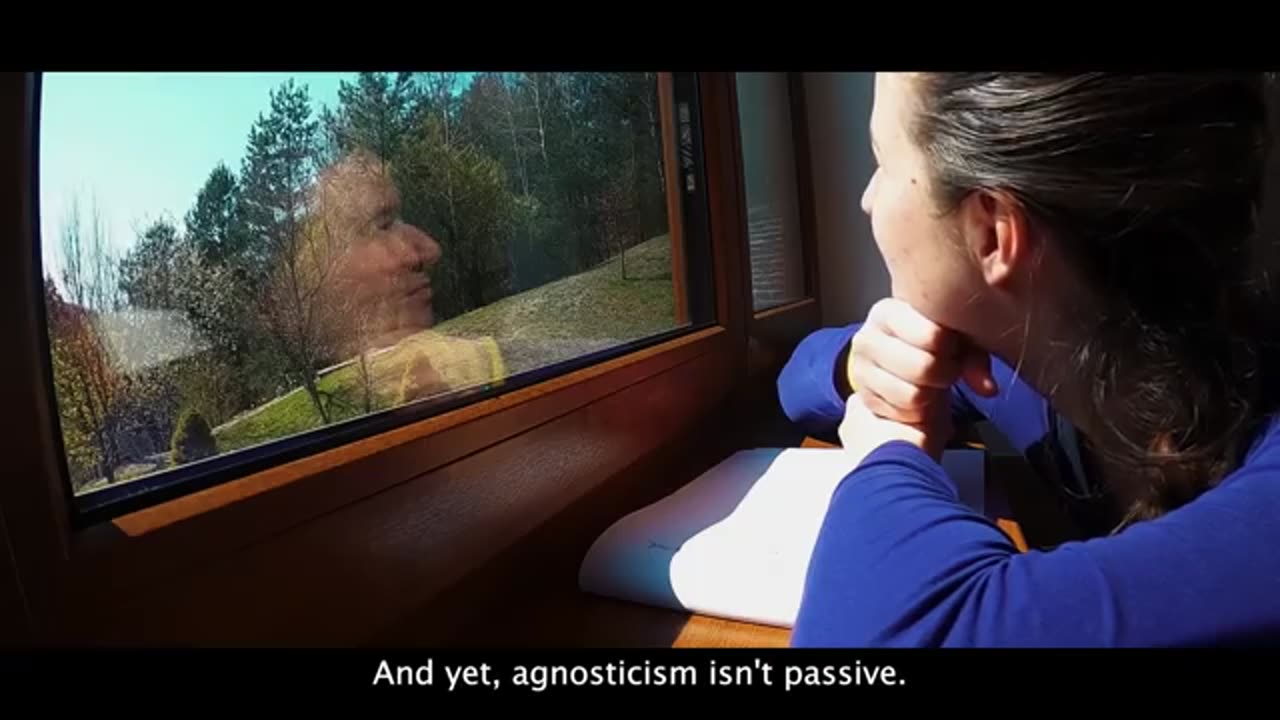Premium Only Content

Why Agnosticism Might Be the Most Honest Stance
Source:
https://www.youtube.com/watch?v=PkEh5LofpRM
Why Agnosticism Might Be the Most Honest Stance:
This video explores agnosticism as a position of intellectual honesty, challenging the common pressure to adopt certainties in belief systems. The key points are:
Challenging Inherited Beliefs: Many individuals inherit beliefs without critical examination, where questioning is often discouraged in favor of obedience.
Agnosticism as "I Don't Know": Agnosticism is presented as an admission of uncertainty, a pause, and an honest stance in a world that often demands definitive answers.
Beyond Black and White Thinking: It advocates moving past the pressure to choose between belief and non-belief, recognizing the complexity of human thought and the unanswerable nature of some questions.
Human Nature and Religious Myths: The video discusses how religious myths often arise from the human brain's need to make sense of chaos and fear, and agnosticism reflects this by not claiming to know what lies beyond or assigning divine attributes.
Feelings vs. Proof: It highlights the distinction between conviction/feelings and truth, suggesting that agnosticism doesn't yield to comfort or sentimental appeals, accepting the unknown without needing to fill it with "fairy tales."
Humility and Fear: Agnosticism involves a humility that comes from questioning previously unquestioned teachings, and it acknowledges that belief is often linked to fears (e.g., of death, meaninglessness), but it doesn't use deities to alleviate these fears.
Belief from Childhood and Control: Religious beliefs often begin in childhood, serving as a system of control through teachings of divine judgment and reward. Questioning this ingrained programming can be difficult.
Lack of Evidence: A crucial point is the absence of clear, testable evidence for any god or afterlife, with only ancient texts and conflicting stories available.
Effort and Integrity: Agnosticism requires effort to embrace uncertainty and challenges societal norms that favor conformity. It encourages individuals to find their own meaning and take responsibility for their choices without a "safety net."
Doubt as Strength: The video argues that doubt, often seen as a weakness by religions, is actually a strength because genuine truth withstands scrutiny. Agnosticism embraces the process of examination.
Science vs. Belief: Historically, religions explained natural phenomena in a personalized, spiritual way. With scientific advancements, causes can now be traced without invoking supernatural beings. Belief persists to fill psychological gaps, but agnosticism avoids filling them with illusions.
Integrity Over Indecision: Agnosticism is presented as intellectual honesty, not indecision. It avoids hasty conclusions without evidence, differentiating itself from ideologies that often stem from absolute certainty and can lead to conflict.
Freedom from Leverage: Agnosticism removes the influence of eternal rewards or punishments, asserting that belief is not obligatory. It encourages living with questions and accepting the unknown, positioning itself as an honest stance in a world that offers many answers.
-
 LIVE
LIVE
The Mel K Show
1 hour agoMORNINGS WITH MEL K -Deja Vu? Decades of Crimes Without Consequences 10-9-25
506 watching -
 LIVE
LIVE
Grant Stinchfield
58 minutes agoTrump’s DOJ to Crush ANTIFA’s Cash Cows
163 watching -
 1:00:11
1:00:11
VINCE
3 hours agoTrump's Greatest Deal Yet | Episode 143 - 10/09/25
133K87 -
 LIVE
LIVE
LFA TV
12 hours agoLIVE & BREAKING NEWS! | THURSDAY 10/9/25
4,033 watching -
 LIVE
LIVE
MattMorseTV
2 hours ago $2.08 earned🔴Trump's Cabinet Meeting BOMBSHELL.🔴
1,177 watching -
 1:14:57
1:14:57
The Big Mig™
3 hours agoPeace In The Middle East! Bring On The Nobel Peace Prize
22K11 -
 20:24
20:24
Clownfish TV
6 hours agoDisney World INSANE Price Hikes: Tickets Cost Over $200 Now?! | Clownfish TV
10K11 -
 LIVE
LIVE
The State of Freedom
5 hours ago#340 The Green New Scam Ain’t Dead Yet w/ Gary Musgrove & Mark Guillory
35 watching -
 LIVE
LIVE
Benny Johnson
2 hours agoTrump Cabinet Meeting LIVE Right Now At White House as World in SHOCK At Israel and Gaza Peace Deal
5,869 watching -
 LIVE
LIVE
Barry Cunningham
12 hours agoBREAKING NEWS: PRESIDENT TRUMP HOSTS FULL CABINET MEETING!
1,501 watching
